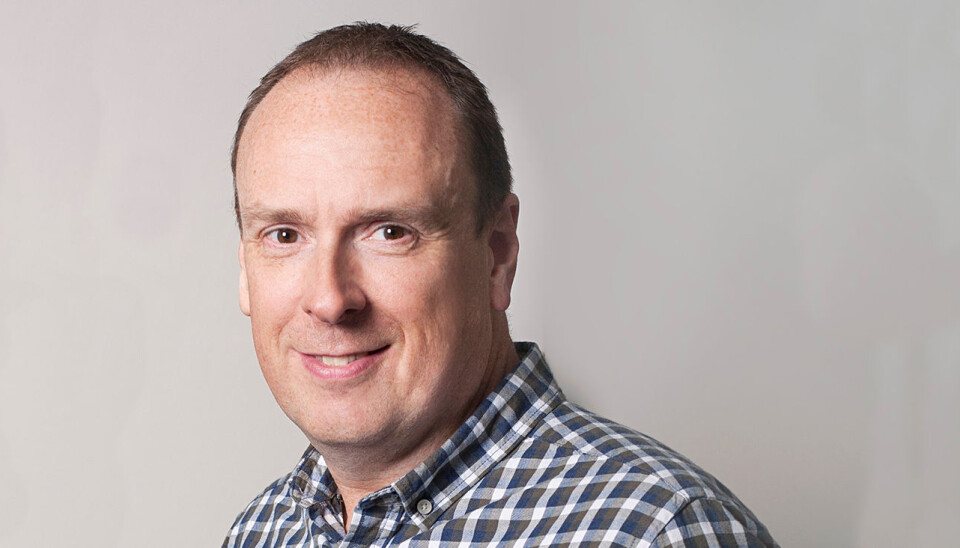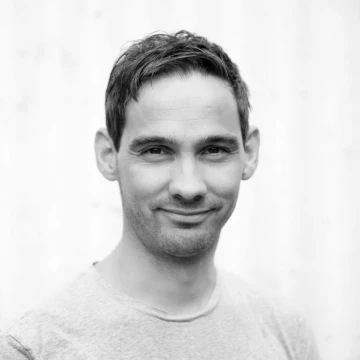-

Senior AI & ML Engineer | NBIM
-

Leder data og KI | SpareBank 1 Forvaltning
-

Arkitekt | SpareBank 1 Forvaltning
-

Head of Community Arena – Collektivet i Construction City | OBOS
-

Senior forretningsutvikler / produktleder - konsulent (2 stillinger), med partner- og medeierskap | Kadabra
-

Senior Security Engineer | Firi
-

Senior Software Engineers - Frontend & Backend | Hornet
-

Medeier* | Boitano
-

Fullstack-utvikler | Norad
-

Lead Data Engineer | Norad

Ex-Kahooter Tim Moore: You say you want a revolution?
Opinion by Tim Moore, former general manager in Kahoot and now partner in We Are Human, writes about education in Shifter
Academic success comes at a cost, as the pressure to achieve is impacting children’s social skills, health and overall happiness. The world's education systems, invented in the industrial age, are no longer fit for purpose.
How do you effect systematic change?
Two choices: manipulate the system from within, or stand apart.
Working from within can be a long and arduous journey. Fraught with apathy, ingrained behaviours and vested interests.
Standing apart is liberating. It allows us to disassociate from the status quo. There’s no need be too accommodating or democratic. We can be pure about ideals. We are free to embark on a new mission, create a greater vision, or set a higher standard.
Historical leaders from the past like Martin Luther King, Emmeline Pankhurst, and Mahatma Gandhi stood apart. These days, we are able to consolidate and amplify our voices through hashtag activism, e.g. #MeToo, #TakeAKnee, #ImWithHer.
When a simple idea attracts enough followers, it becomes a movement, with an even greater scale of impact, it can become a revolution.
And that’s what we need in education.
“Our education systems are broken”
I read that line so often it’s become a cliché. But it’s true; the worlds education systems, invented in the industrial age, are no longer fit for purpose.
They are too big, tangled in archaic roots, with a lack of leadership and political will at the policy-making level. Despite many visionaries outlining paths toward improved models, the incredibly stubborn status quo remains mostly intact and continues its top-down culture, one-size-fits-all curriculum, age-based cohorts, and relentless obsession with standardisation.
Sir Ken Robinson laments “the institutional tendency in education to judge students by a single standard of ability and to treat those who don’t meet it as “less able” or “disabled” — as deviations from the norm.”
Zach Groshell observes the typical, teacher-directed classroom or lecture theatre and asks “Who is doing the thinking? Who is actively using language? Who is leading? What is the relationship between the student and the teacher? And since learning is the ultimate goal, is learning happening? And, is this how students best learn?”
Singapore is ranked as the highest performing education systems in the world by the Programme for International Student Assessment (PISA). Yet, the evidence grows that the country’s academic success comes at a cost, as the pressure to achieve is impacting children’s social skills, health and overall happiness. The system is measuring the wrong outcomes.
Educators working within the system recognise a need for change, but nobody knows where to start. It seems an insurmountable challenge.
“I think the best way to change the public school system is to create models outside of it,”
Jerry Mintz, Alternative Education Resource Organization
What science knows and education ignores
Back in the 70’s, education theorist David Kolb developed his experiential learning model. His studies proved that effective learning happens when a person progresses through a cycle of four stages:

1. Concrete experience. A new is encountered, or a reinterpretation of an existing experience.
2. Reflective observation (of the experience). Recognising any inconsistencies between experience and understanding.
3. Abstract conceptualisation. Reflection gives rise to the formation of abstract concepts (analysis) and generalisations (conclusions), or a modification of an existing concept.
4. Active experimentation. The learner applies new hypotheses to the world around them, resulting in new experiences.
The model is an academic dissection of what I would describe as play; our most basic and natural learning behaviour.
It’s just one of many examples that show how science has gained a thorough understanding of our brains and the way we learn. The great irony is that this knowledge has not yet influenced the way we run our education systems.
What is the purpose of education?
Let’s back up for a moment… What are we trying to achieve here?
Stephen Covey, who is mostly remembered as the author of The Seven Habits of Highly Effective People, coined a universal mission statement:
"To improve the economic well-being and quality of life of all stakeholders."
‘Economic well-being’ was defined as having present and future financial security and ‘quality of life’ includes five dimensions:
-- Acceptance and love
-- Challenge and growth
-- Purpose and meaning
-- Fairness and opportunity
-- Life balance
Isn’t that what we all want? Given this context, what problem are we trying to solve when we learn? We’re not just collecting certificates.
Fundamentally, learning is preparation for the future — developing the capacity to respond to opportunities and challenges that arise throughout our lives, to improve our economic well-being and quality of life.
The changing workplace
The world’s labour markets are intended to generate economic well-being and quality of life through employment opportunities with adequate compensation and benefits for all. Yet, they are increasingly unstable and unpredictable with demand for manual skills in decline and cognitive skills on the increase.
The World Economic Forum’s ‘The Future of Jobs’ report provided the liberally cited line “65% of children entering primary school today will ultimately end up working in completely new job types that don’t yet exist.”
To prepare for an uncertain future, employers are desperate to recruit people endowed with creativity, technological savviness, emotional intelligence and business acumen, but our education systems appear unable or unwilling to focus on those needs.
Underwhelming EdTech
“We can not solve our problems with the same level of thinking that created them.”
Albert Einstein
According to TechCrunch, global investors put $8.15 billion into education technology companies in the first ten months of 2017.
Many of those companies are simply creating more efficient versions of fundamentally industrial-age systems. They confuse the application of new technology and the digitisation of the classroom with pedagogical progress.
Digital transformation should encourage new behaviours. We need new platforms that inspire people to engage in learning opportunities, enabling each to use their initiative and self-direction to pursue a personalised curriculum based on their interests and strengths.
We have written previously about our work at Kahoot! whose highest purpose is to help learners realise their deepest potential, in classrooms and beyond. EdTech needs more companies with that kind of vision and ambition.
"We want to improve education globally, by unlocking the magic of learning for everyone — of any age, aptitude or circumstance."
Johan Brand, Co-Founder and formerly CEO of Kahoot!
Rising to the challenge
In the future, everyone on the planet will have access to inspiring, personalised, lifelong learning experiences; which they can choose to engage with to improve their economic well-being and quality of life.
When we inevitably develop technologies capable of utilising data and artificial intelligence to compile, sequence, deliver and assess appropriate adaptive learning experiences at scale, education institutions will change.
It’s time for EdTech to rise to the challenge. Resist the temptation to merely improve the many administrative inefficiencies and focus on ways to fundamentally modernise teaching and learning.
Join the revolution
You say you want a revolution
Well, you know
We all want to change the world
You tell me that it’s evolution
Well, you know
We all want to change the world
How will it play out? Find your hashtag and add your voice to the discourse.
(The article has also been published on We Are Human's blog on Medium. Johan Brand is a partner in We Are Human and he has also invested in Shifter)



